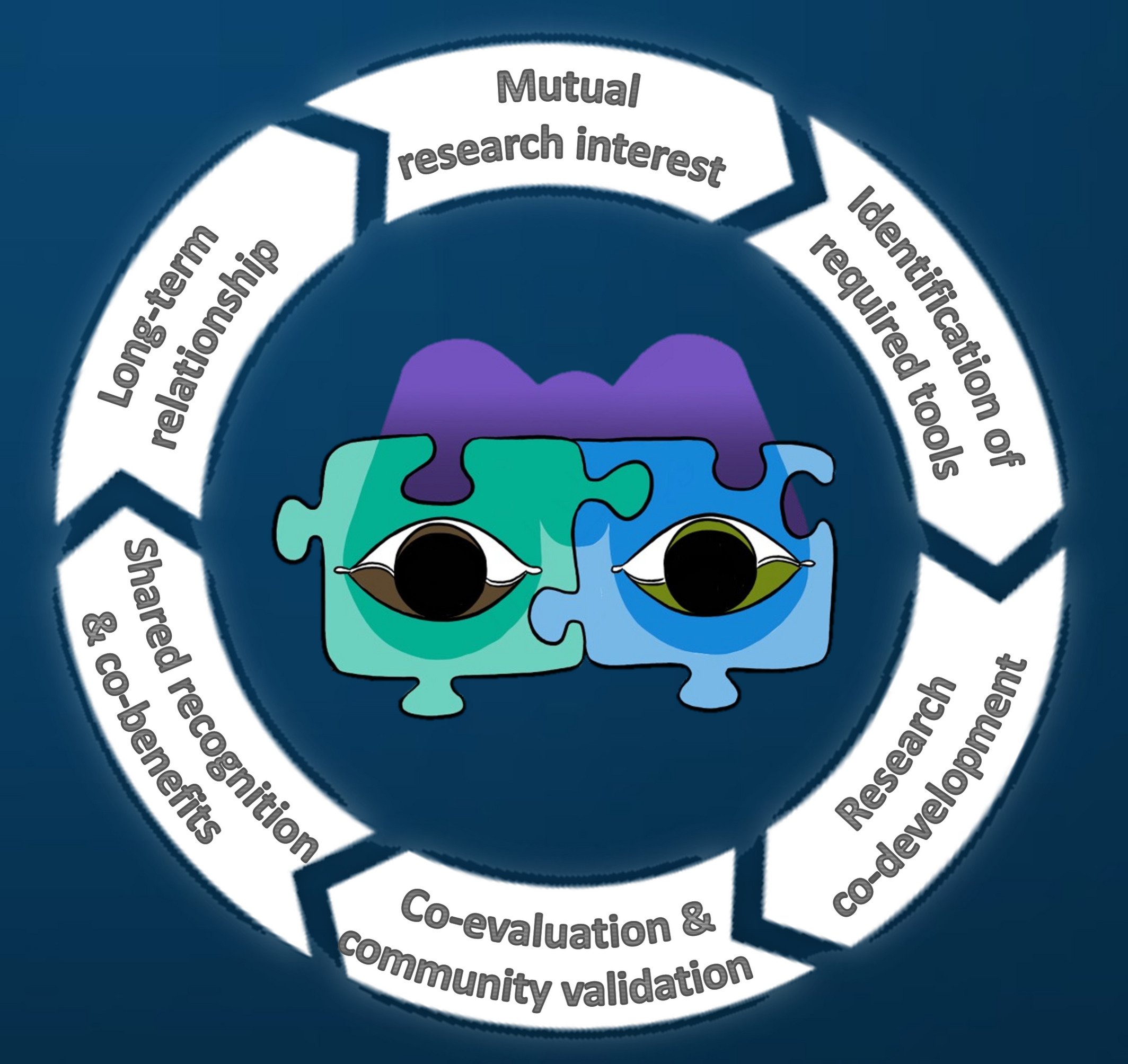Excerpt from paperReconciliation is about restoring balance in the relationship between Indigenous peoples and non-Indigenous Canadians. It involves a shift in power and knowledge, that is, who holds the knowledge and who decides what type of knowledge is recognized as valid…. Meaningful knowledge sharing and knowledge co-production results in better understanding and management of resource activities on the land.
DOWNLOAD THE PAPER (EN)
DOWNLOAD THE PAPER (FR)Call 3 | We call on natural scientists to enable knowledge sharing and knowledge co-production.
Key Takeaways*
Complex problems require multiple ways of knowing.
Recognize that sharing knowledge goes two ways. Actively show that you respect Indigenous Knowledge and the information needs of Indigenous communities. Make time and space to listen.
A way of re-balancing and sharing power is through knowledge co-production.
It means having an open mind to producing new ways of knowing and seeing different outcomes
*The NWT Association of Communities worked with the authors to develop a summary of the article. Some of the wording in the Key Takeaways comes from the summary which can be found here
The reality is, you don't do anything in this life without somebody else's assistance, somebody else's ability, somebody else's know-how. Young scientists have to know that, too...Something that you may put words to is never founded only on your understanding. It's based on a multitude of people that have been walking ahead of you.
Gùdia (Mary Jane) Johnson
Lhu'ààn Mân Ku Dań
Kluane First Nation Elder

Step up | Knowledge Sharing
Beyond publishing results in scientific journals, we call on scientific researchers to commit to providing meaningful knowledge-sharing deliverables such as:
Write digestible summaries of your research that are helpful to the community.
Use creative media to reach wider audiences, especially youth.
Hire local people to translate reports into their Indigenous language.
Present the results of your work directly with the Indigenous community and allow time to review.
Assess how the results of your work can inform environmental or other management decisions about the traditional territory.
Compile a list of research that you performed in the traditional territory.
Make existing knowledge, data and information about the land more accessible to respective communities.
Step up | Knowledge Co-production
Knowledge co-production is a larger endeavour than knowledge-sharing but both require a commitment to recognizing that Indigenous peoples have inherent rights and jurisdiction over Indigenous Knowledge as well as research and information collected by and about their people, and on their traditional territories.
Knowledge co-production can occur when Indigenous communities and Western scientists come together to generate new knowledge or to synergize information from different sources to address a question. It means becoming equal partners throughout the research design, funding, planning, implementation and interpreting results together.
It is attempting to bridge different understandings to create innovative outcomes to meet our challenges of today.
The concept of Etuaptmumk (Mi’kmaw for ‘Two-Eyed Seeing’)
This concept is often used as an example to illustrate working with different knowledge systems. Two-Eyed Seeing embraces “learning to see from one eye with the strengths of Indigenous knowledges and ways of knowing, and from the other eye with the strengths of mainstream knowledges and to use both these eyes together, for the benefit of all,” as envisaged by Elder Dr. Albert Marshall. There are many similar frameworks, and it is best to work with individual Indigenous communities in a knowledge co-production approach to discover what would be appropriate.
GRAPHIC PUBLIC DOMAIN CC BY-NC-ND 4.0 Reid et 2020. “Two-Eyed Seeing”: An Indigenous framework to transform fisheries research and management. Fish and Fisheries. 001-19. Article 

